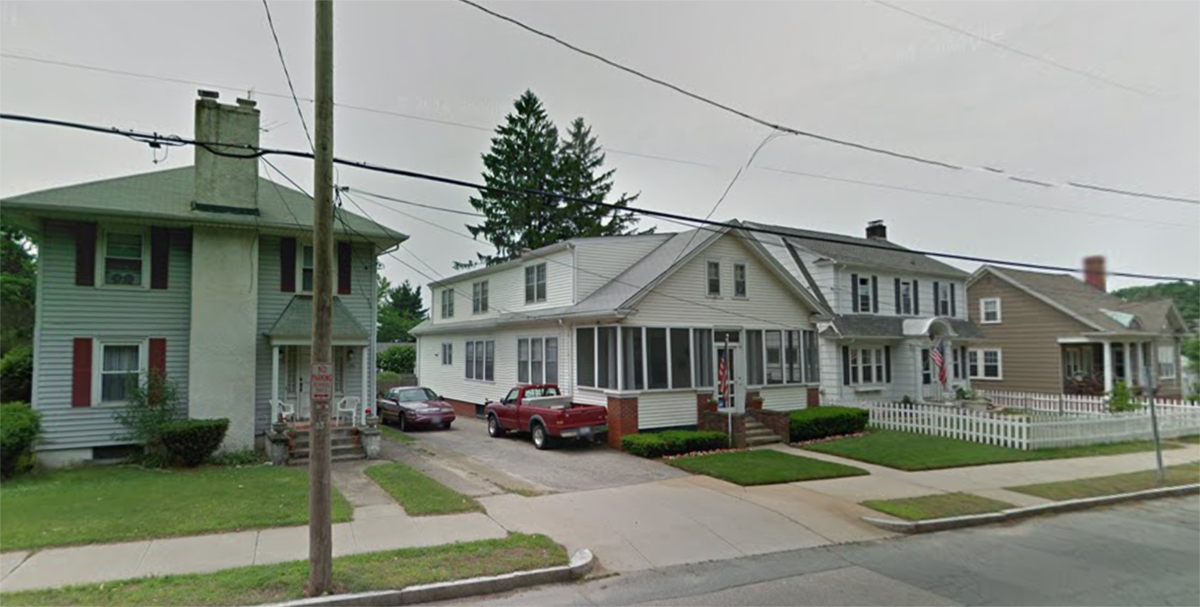
Proposed rezoning would limit the number of students allowed in houses such as these on Eaton Street across from Providence College.
Concerned urbanists will want to check out my post on RI Future’s about a proposed exclusionary zoning provision banning cohabitation of more than three students in a household in zones 1 and 1A. The proposal threatens to increase housing costs on low income people, and is a threat to even modest density and thus transit frequencies.
The first vote, last Thursday, was 10-3. Opponents of exclusionary zoning need to knock off just one of those votes next Thursday to enable a mayoral veto (zoning provisions have to pass twice through Council). Check the list to see if your councilperson was one of the ten. There are some surprising names on there, including councilpeople representing working class and student-heavy constituencies, and councilpeople who have typically had better judgment on urbanist issues.
[alert type=”warning”]Visit RI Future to read James Kennedy’s post from last week on this issue.[/alert]
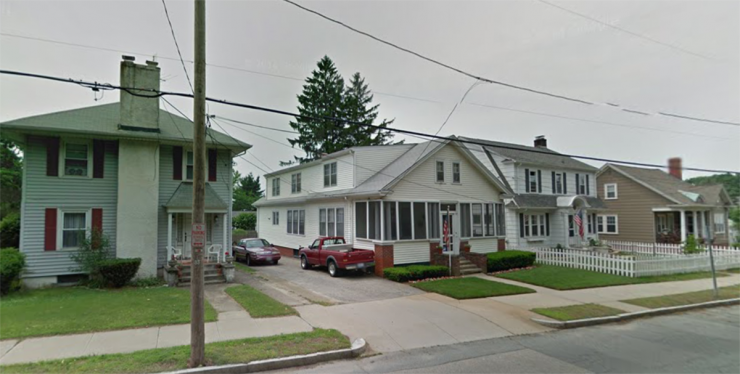
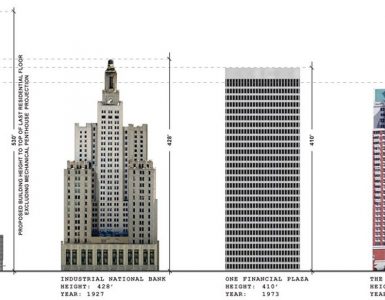
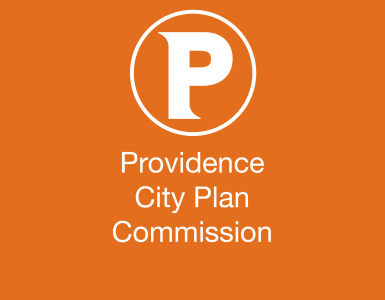
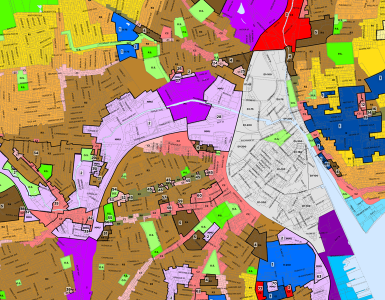

As an Elmhurst resident, I really hope to see this vetoed. I don’t even like single-family zoning in the first place since it limits housing choices that are more affordable and makes it harder to make a place Walkable.
Mark,
I’m curious: did Councilwoman Ryan ever give you a reply to your email?
I’m also curious: Do you know a lot of people who are talking about this in your neighborhood? Being a lifelong resident must make you fairly closely tied in to a lot of people, like friends or parents of friends who you’ve known all your life. I wonder if you feel like your thoughts have made an impact on anyone in your neighborhood about this?
No she did not get back to me. Other than my dad, I haven’t heard much about it, but I haven’t seen my neighbors in a while. My dad is pretty opposed to the ordinance.
It’s big talk on the Elmhurst Citizens Group group on Facebook. The vast majority of the folks there, which include lots of faculty from PC, are in favor of this ordinance. I’m, personally, opposed to it as I see it as unenforceable lip service that unfairly targets college students and will have unintended consequences. We don’t need another unenforced ordinance on the books.
Hi. I’m kind of a lurker here and have never commented but I feel compelled to. I was born and raised on Tyndall near PC and lived for 30 years there until 4 years ago (I’m 34). Now i enjoy a beer or two now and again, but the neighborhood has become simply unlivable for a family. I urge you to try and imagine what it’s like to be awake at 3:00am with a crying baby who can’t sleep because there is a raging keg party going on outside her window. The last straw was walking with my wife and five year old daughter seeing a student with his penis in plain view urinating on my house at 3pm on a Saturday. It became so unbearable that my wife would cry at night at the thought of living there. It was not always like this. Absentee landlords are buying up single family properties that were never rented to students in areas that have many families and children living. I’m sure that this ordinance is not the only solution, but something needs to be done.
Update on this: ACLU of RI calls for the measure to be rejected.
http://www.rifuture.org/ri-aclu-urges-pvd-to-reject-exclusionary-zoning.html
John,
Thanks for your comment. It’s Jef’s blog, but my article, so I feel compelled to reply.
I 100% agree that (some, maybe many) students’ behavior is unacceptable, and should be addressed.
The NPR report on this really struck me, because it cited a severe incident between some students and a resident where the students threw an unopened can of beer from a balcony at a woman’s car, were reprimanded, and then laughed unaccountably.
The report really made an impact on me because I’ve had exactly the same thing done to me when I lived in Philadelphia. I was walking at 46th and Chestnut St., and some African-American kids on a third-floor balcony threw an unopened can of soda at me. I heard it crash to the ground and explode. When I turned to hear the noise, I felt a whoosh of air pass my left ear at high speed, and another one passed in front of me and crashed to the sidewalk just in front of my feet.
The feelings I had about this incident, and others, when I lived in Philadelphia could have shaped my overall views of the African-American community. And truthfully, given that Philadelphia is a city that I dare say has a much deeper and darker racist history than even Providence’s, there would be plenty of good, logical reasons for me to expect that some people I met on the street who were black would view me with skepticism (or worse). Viewing things that way wouldn’t necessarily be racist, it would just be being realistic about the tense nature of interracial relations in a lot of cities (especially Philadelphia). And for their part, I feel like many people in the community probably had good reason to view me that way. Or at least understandable reasons.
But there are so many people who didn’t participate in throwing cans at my head, and while it still flashes back on me whenever I go past that building, I haven’t ever again had an issue. It would have been wrong for me to try to chase that problem away by chasing a demographic away that makes me feel uncomfortable.
Discrimination against students isn’t on its face as bad as discrimination against people of a racial group. It’s somewhat true that younger people are going to be more likely to do stupid or callous things than more experienced mature people, and that reality feels more solid to me than a broad assumption about the behavior of any culture, under any circumstances. It’s also true that being a college student is temporary, and not even a stage that everyone gets to enjoy. But the overall effect of this proposal doesn’t address people assaulting neighbors, peeing on yards, or being drunk. It draws a line around all students, and assumes that all students do these things.
The spillover of that effect will affect people of color and poorer people in general, both in that students who are from those backgrounds will be the most affected by higher rents, but also because students who can find housing will spill over into areas where they outbid lower income non-student residents. I think that’s a serious problem.
I certainly support doing something about the disrespect of the students in question, but this would be the wrong thing to do.
I’m also a lifelong resident of Elmhurst area and I agree with John on this.
Comparing poor black children to PC college students is wrong.
Black community has suffered from legacy of slavery and government enforced racism. Can we even compare that level of hardship to a mostly white and mostly affluent student body?
The comparison I’m making is different than the one you’re presenting. The point of comparison is the similarity of methods used to exclude students and other groups of non-single-family demographics. The point of comparison is *not* the severity of the experience of those respective groups. I think it passes the elementary ethics test to say that it’s pretty clearly worse to be a poor black kid than a college student. But the fact remains that the tools and asumptions used by those who want students out also keep poor black kids out. There should not be a Zone 1 or 1A. The idea of these zones is itself offensive, but is the part of the story least questioned by observers.
The other point of comparison is to the end that it’s silly in any case to judge a very diverse group of people by the actions of a few, even when there are reasonable causal determinants to their actions that can be associated with the group. Youth and immaturity leads to crime (as well as being male) so it’s not silly for residents to worry if a group of rugby-shirted jocks moves in next door. There’s a pattern. It’s still wrong to run with that pattern wildly and exclude students (or even, male rugby-shirted students). I wouldn’t put myself on such an extreme course as to say that it’s the same level of moral reprehension to do that as to be racist or homophobic. I think that goes without saying. But let’s also remember that the students most truly affected by this will be students who are working class of any race, and that for that matter students who are LGBT but aren’t lucky enough to have hip parents will also be much more on their own than others. I would also count DREAM students among the most affected by housing costs. So every kind of discrimination you can imagine will fail on students who happen to be within those sub-groups as a secondary effect of this dumb zoning law. How ironic to create a policy that will least affect the student demographics that probably produce the msot noise and filth, while most affecting those who have nothing to do with the problem.
As someone who grew up in a rowhouse–and not a fancy-schmancy nice rowhouse in a historic neighborhood, but the tacky “Warner West” style housing of the Philly area–it makes me angry that people in single-family homes who enjoy those homes in their “typical” form are so blind. The only time in my life that I’ve had the privilege to live in a single-family house has been as group housing. If neighbors had done this to me as a student, I don’t know what I would habe done. As it is, I went to school on Pell Grants and work-study, held another job, and got honors scholarships, but still had to take two years off for financial worries, and still ended with nearly $20,000 in debt. For in-state tuition at a state school. Much of the debt was housing and food, books, and so on. It matters.
Students should be held accountable if they act out. But this is a dumb way to do so.
Raucous drunken partying is learned behavior. Now, in addition to letting the worst of the drunken kiddies and and all the beer advertising establish student culture, the very laws of city convey that this is the only way young adults can be expected to act. No wonder they do.
James,
I appreciate your response. Like I said in my initial comment, I’m know that this ordinance is not the only way to solve the problem, but SOMETHING needs to be done.
From an urban planning perspective, turning single family homes into student housing should be discouraged. I’m all for density, but not at the expense of livability. Elmhurst is one of the few neighborhoods in Providence that is affordable, safe, and family-friendly. Just visit Fargnoli Park on Smith Street and you’ll see families from all racial and ethnic backgrounds enjoying a summer concert or playing in the playground.
Students are transient and the population who live off-campus turns over every year or two. Even well-behaved and respectful students are not permanent community members. When a growing share of our city’s housing is dedicated to students, it comes at the expense of residents who have a vested and long-term interest in the health of our city.
Also, it’s easy to say that enforcing the noise ordinances is the best way to address the problem, but this is much easier said than done. There are a few thousand students partying each weekend in Elmhurst and the police are simply out-manned. The situations described in the NPR story aren’t rare occurrences. The neighborhood resembles a near-riot scene on many weekend nights. The police are doing their best to try to make sure no one actually gets hurt. No one should have to feel like a prisoner in their own home, which is how my former neighbors feel.
Anyway, just my two cents.
John, the issue is that PC’s campus is too small to meet the demand for student housing, unless they build adjacent to the campus or build up. The lack of on campus housing is the reason that student housing spills off campus and yes I know that it’s more that just PC students. Cost might be a factor too but I don’t know how much on campus housing costs at PC. I do agree that PC should build more student housing but there’s no getting around the fact that exclusionary zoning is a very discriminatory practice no matter what demographic is targeted. I have no problem sharing a neighborhood with students. Wanting to make sure that the students don’t cause commotion is fine but doing that using discriminatory practices is crossing the line. The last thing you’d want to do is make students feel unwanted.
I’m not exactly sure what measures would work to deal with noise, but I know that I live in a student dominated neighborhood, and I don’t have noise or trash problems, and am never harassed. The other night there was a bit of noise, actually, but it was the neighbors in their 50s and 60s having a party (I recognized voices, and it was also confirmed later by a neighbor). There must be a reason the East Side doesn’t have this problem, and Councilmen Yurdin and Zurier insist it’s because of Brown and RISD intervening and taking charge of student behavior.
I should say that living in whatever broom closet or mad’s quarters I could find in a large house was the way I made it through college, and all of the homes I lived in during college were probably once the mansions of industrialists. They were never meant for me. I went to Temple, and Temple is a large commuter school with some dorms on campus as well, but I’ve heard stories that as Temple students moved out into N. Philly, the neighboring black residents felt like the student body was disrespectful, loud, partying, etc., etc. I can’t speak to whether that was true, but I’m sure it was true some of the time. I commuted from West Philly, which was a very racially and age-mixed neighborhood. The first house I lived in when I was 19 or so was with people a lot older than me–my oldest roommate was 62 and complained at dinner about his prostate. Other houses I lived in over the years were closer to my own age, but always had a mix of people in their late teens, twenties, and thirties–if not sometimes forties. I think the whole approach of pushing students away from adults is wrong-headed. My first house with the sixty year old actually didn’t work out that well, but it put me in a position to experience people’s different expectations of living. I had a party that went to about 11 one Saturday night, where about 8 people shared a six pack of beer, and there was music and so on. My housemates found that to be loud, and too much. I think that outside of the extreme fringes of students like those who commit outright assaults, most students are acting without regard to their neighbors but with a lot less vitriol. Having relationships with people who have families, with people who are older or younger than them, is exactly what builds that maturity and respect that eventually turns us into adults. If I had spent my college years just among college students, I’m sure I’d have matured more slowly. I consider the unique racial and age mix of West Philly to have been one of the finest contributions I’ve received to being a better-rounded person.
It’s like a Chinese finger trap. Your instinct is to pull harder, but what you really need to do is let go.
I understand and can appreciate all the points raised about issues of discrimination. I’m not anti-student and open to ideas about what other ways the problem can be addressed. I am just trying highlight the real damage to the city’s economy and livability that the insane, alcohol fueled, free-for-all is causing.
A couple of points I’d like to reinforce:
1. The partying is not just a couple of kids having a six-pack on the porch. It’s more like “let’s have a few thousand people over, set a couch on fire” parties. It’s really something to behold.
2. The partying has gotten SIGNIFICANTLY worse and spread to more streets over the past few years.
3. Families are moving away….I did. You simply can’t raise a family in that environment. It’s not just a bunch of cranky old people either. Many of my 30-something friends are voting with their feet and moving out of Elmhurst. In a city struggling to attract young people, this can’t be a good thing.
.
At the very least, I’m glad that this issue is getting some attention. OK, my venting is overs
When I lived on Federal Hill, the problem houses were not drug houses, but Johnson and Wales student housing. As the old timers died off, or moved in with their kids in the suburbs, absentee landlords bought up property between Atwells and Broadway, just as they did on Pembroke and Oakland Ave etc over by PC. Landlords who do not live in the community can and do charge a premium for student housing, and it is not a surprise that a three bedroom apartment would have more than three students living in it.
This was an issue well over 30 years ago on the East Side, as students made it impossible for Fox Point residents to afford the rent and many moved to East Providence. This isn’t a new phenomenon and for folks to think that the ordinance somehow adversely affects the poor, I would argue that it would do the opposite. When a landlord can’t get $2k for a three bedroom one bath, he or she can rent it to a family much more reasonably.
I had actually thought that the 3 unrelated persons in a dwelling unit was already an ordinance.
And where I live now, in the suburbs of DC Metro area, where the closest college is a Community College and the closest University is well over 25 miles away (and in traffic here that’s like 5 dog years) the house that is a problem on my street is the one with 4 students living in it.
PC exists in a bubble compared to the other colleges. It’s a contained campus. The students almost never have to leave the campus or the immediate surroundings. The same is not true for the other colleges in the city (RIC being the only other exception). PC also treats the students like children. They enable helicopter parents. The students rarely face real consequences for their actions because their upper middle class parents swoop in and take care of everything for them. There’s a reason some of them are paying upwards of $1000/month per BEDROOM to live off campus.
The parties are not happening in the areas that are dominated by single family homes. They’re happening east of Huxley. Those streets are dominated by multi-family homes. There are single family homes for rent elsewhere in the neighborhood that could be rented by students now (I saw a listing for a 4br for $2200/month) that are far more affordable than the 02908 Club houses elsewhere in the neighborhood. The students who cannot afford to live on campus and cannot afford the ridiculous rents of those other houses would live in houses like that one. That makes living off campus far more affordable than living on campus, while the other houses are pretty close to the same cost. So the ones being hurt are the low income students. And the big thousand people parties are not happening on that side of the neighborhood. So I don’t know what the problem is.
The law also fails to acknowledge the fact that graduate students do not hold parties. You get a house of doctoral students and you’re not going to see big parties. They often prefer the quieter neighborhoods and might rather live in a single family home. It offers more quiet to study and write. But if this law takes effect, it does not allow them to do that affordably. The law also fails to take into account married graduate students.
The law is flawed, and no one will admit that it will not help a single bit in curbing the partying even though that’s the truth. No one will admit that there are already laws on the books that go unenforced that could do what they want this law to do. Instead they pretend they’re doing something just like Providence College pretends to be doing something. Yet the college continues to shelter the students from anything “uncatholic” so they don’t see that there are great alternatives happening around the city. The college is extremely strict about drinking and partying on campus. So the students go off campus. There isn’t a housing shortage on campus. They guarantee any student who wants to live on campus a place to live. The problem is that students want to get away from the strict rules (parietals, anyone?). They want to have fun and be adults, but they don’t know how to be adults because at Providence College, you don’t have to be. So they do what they do knowing that if they get in trouble, mommy and daddy can swoop in and make it go away.
If the college actually cared about the neighborhood, they could do something. But it’s obvious through their actions (including the likely closing off of Huxley between Eaton and Admiral) that they don’t really care. This ordinance is not going to stop the big parties that people complain about. It will just mean that lower income students will have a harder time and that some homes may sit vacant or some landlords may have to lower their rent in order to fill the house.
John,
I hear you. Something must be done. And yes, that’s the description I understand of the parties. Awful, bo doubt.
Mothra,
I agree that students likely outbid lower income non-students, at least as a whole. I think that’s one of the issues. Students will live somewhere, and limiting them 3 to a house will spread the students the way water on a grease fire does.
A huge issue of affordability is NIMBYism blocking new housing. It wouldn’t be a problem for new people to move to an area if housing stocks grew accordingly. This is one reason that exclusionary zoning is so wrong. We have an apartment that is affordable for us as a couple, but even with a dual income it’s challenging, and we rent well below the usual market rate (850 for a two bedroom in the E. Side). When we have zoning blocking multifamily housing, blocking creative reuse of large single-family homes, it’s like musical chairs with ten new people this round, and three chairs removed.
I’d be for harsh action against students who misbehave. Just not this.
As an UPDATE, the mayor will not veto this. :-/ I have a credible source.
There are a lot of issues at play here. The first is that many folks would like Providence to be denser, and more vibrant, without being willing to accept that the infastructure just isn’t there yet to support denser neighborhoods. It isn’t even there yet to really have a denser downtown. Half of GCPVD is about the failures of public transportation on a regular basis. Periodically I will look at real estate, rentals and for sale properties and I continue to be gobsmacked that my mortgage in one of the wealthiest communities in the country, is less than what I would pay for the same, in many middle class neighborhoods of Providence, and yet salaries are HALF what they are here. Not sustainable. Something has to change.
I don’t know what comes first–the transit, or the housing, or the change in zoning, the density, the commercial cooridors? I don’t know. But none of those things just mentioned can happen in a vacuum and a vacuum is what Providence is entirely too much of the time, unfortunately.
But here’s the thing–the chambers of commerce down here are all falling over themselves to try to figure out how to bring “Millenials” to their community. And they don’t have any of the infrastructure to do so (unlike Providence!) there aren’t enough ways to bike to work,–it is almost impossible to ride your bike to metro (and don’t even get me started on what a literal train wreck metro is these days) there are no interesting clubs, there are no funky university streets and local and independent shops, I am not sure I’ve ever even seen an art gallery here. Community gardens are scarce except in super wealthy neighborhoods, there’s no fun softball or kickball league (Washington DC has not only a wiffleball league but CURLING!) Why would any fun and environmental loving 20 something move to the soulless suburbs of the DC Metro area? Salaries? Not enough of a draw. But once it is time to settle down and have babies and put those little monsters in a school system, they RACE to the suburbs.
In a roundabout way this speaks to this housing ordinance. And PC is not in a bubble–Johnson and Wales students wreck havoc all over the city. I agree that enforcing the laws we already have is a way of dealing with the problem of parties and bad behavior. But honestly since most of these kinds of ordinances and laws are not enforced anyway, this one probably won’t be either.
But, back to the bigger picture, and the age old question–what comes first? Density or infrastructure?
Mothra, I think density would come first since it takes less time and money to upzone a neighborhood but immediately after, better transit should come, but I think it’s possible to do both of those things at the same time. The thing is it takes a exorbitant amount of willpower to upzone singe-family neighborhoods but the fastest way to do that is to get rid of single family zoning, or you could go the really easy route and eliminate setback, parking minimums, minimum lot size requirements and other related regulations.
I think both come at the same time. I also think that biking has got to be a huge part of any change, because it’s quicker and cheaper to make a neighborhood bikeable than it is to add a new transit line. It’s also possible to do so when the densities and layouts are relatively modest, and not very “nodal”. A lot of Dutch cities and towns that are not very dense or even urban in character still have biking rates that would blow the roof off of Portland, Oregon, much less Providence. Those changes can be used to support the transit system, and visa-versa.
I think one thing is clear, too. The neighborhood is going to become less dense than it was before because of the zoning restrictions. So it’s not just a matter of preventing new density, which is a problem. It’s also dialing back the existing density that is a concern.